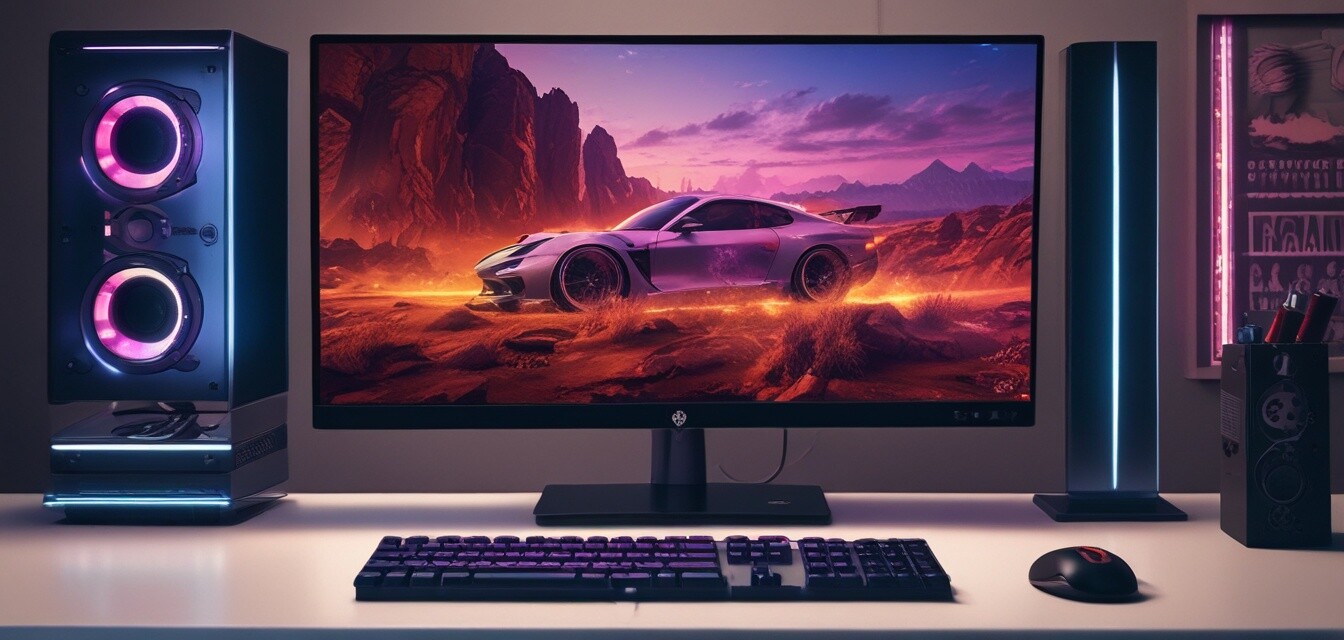
New Gamer's Guide to Selecting OLED Monitors
Key Takeaways
- OLED monitors provide superior color accuracy and contrast.
- Important features include resolution, refresh rate, and response time.
- Understanding panel types is crucial for your gaming experience.
- Consider your budget and gaming needs when selecting a monitor.
- Beware of common myths surrounding OLED technology.
Choosing the right OLED monitor can significantly enhance your gaming experience. This guide is tailored for beginners and covers essential features and common myths about OLED technology. Let's dive into the world of OLED gaming monitors!
What is an OLED monitor?
OLED stands for Organic Light Emitting Diode. Unlike traditional LCD screens that use a backlight, each pixel in an OLED display emits its own light. This technology allows for deeper blacks, higher contrast ratios, and vibrant colors, making it ideal for gaming.
Key features to consider
| Feature | Description |
|---|---|
| Resolution | Higher resolution provides better image clarity and detail. |
| Refresh Rate | A higher refresh rate results in smoother motion, especially in action games. |
| Response Time | Short response times reduce motion blur and ghosting. |
| Panel Type | Different panel types offer unique viewing angles and color reproduction. |
Understanding resolution
Resolution describes the number of pixels in each dimension that can be displayed. Common resolutions for gaming monitors include:
- Full HD (1920x1080)
- Quad HD (2560x1440)
- 4K (3840x2160)
Maximizing refresh rates
For a fluid gameplay experience, a refresh rate of 60Hz is the baseline. Many modern monitors support:
- 120Hz
- 144Hz
- 240Hz
Common myths about OLED technology
When it comes to OLED technology, there are several myths that can mislead potential buyers. Let’s debunk a few of them:
Pros
- True blacks and vibrant colors
- No motion blur
- Wide viewing angles
Cons
- Potential burn-in issues
- Generally higher price point
Budget considerations
When selecting an OLED monitor, your budget can greatly impact your choices. OLED monitors are often pricier than their LCD counterparts, but they offer better features that may justify the cost.
Affordability vs. Features
If you are looking for budget-friendly options, you might explore the budget-friendly OLED gaming monitors category on our site. However, carefully consider which features are most critical for your gaming experience.
How to choose the right monitor
Selecting the right OLED monitor involves evaluating your gaming habits:
- Identify your gaming style (casual, competitive, etc.).
- Assess your available space.
- Determine your budget and prioritize essential features.
Tips for beginners
- Check compatibility with your gaming system.
- Read reviews and product comparisons from trusted sources.
- Visit our Product Comparisons blog for in-depth information.
Conclusion
In conclusion, investing in an OLED monitor can elevate your gaming experience significantly. By understanding the essential features, clearing up common myths, and being mindful of your budget, you can make an informed decision that suits your gaming needs.
For further reading, check out our Buying Guides section that covers various tips on selecting the right gaming monitor.